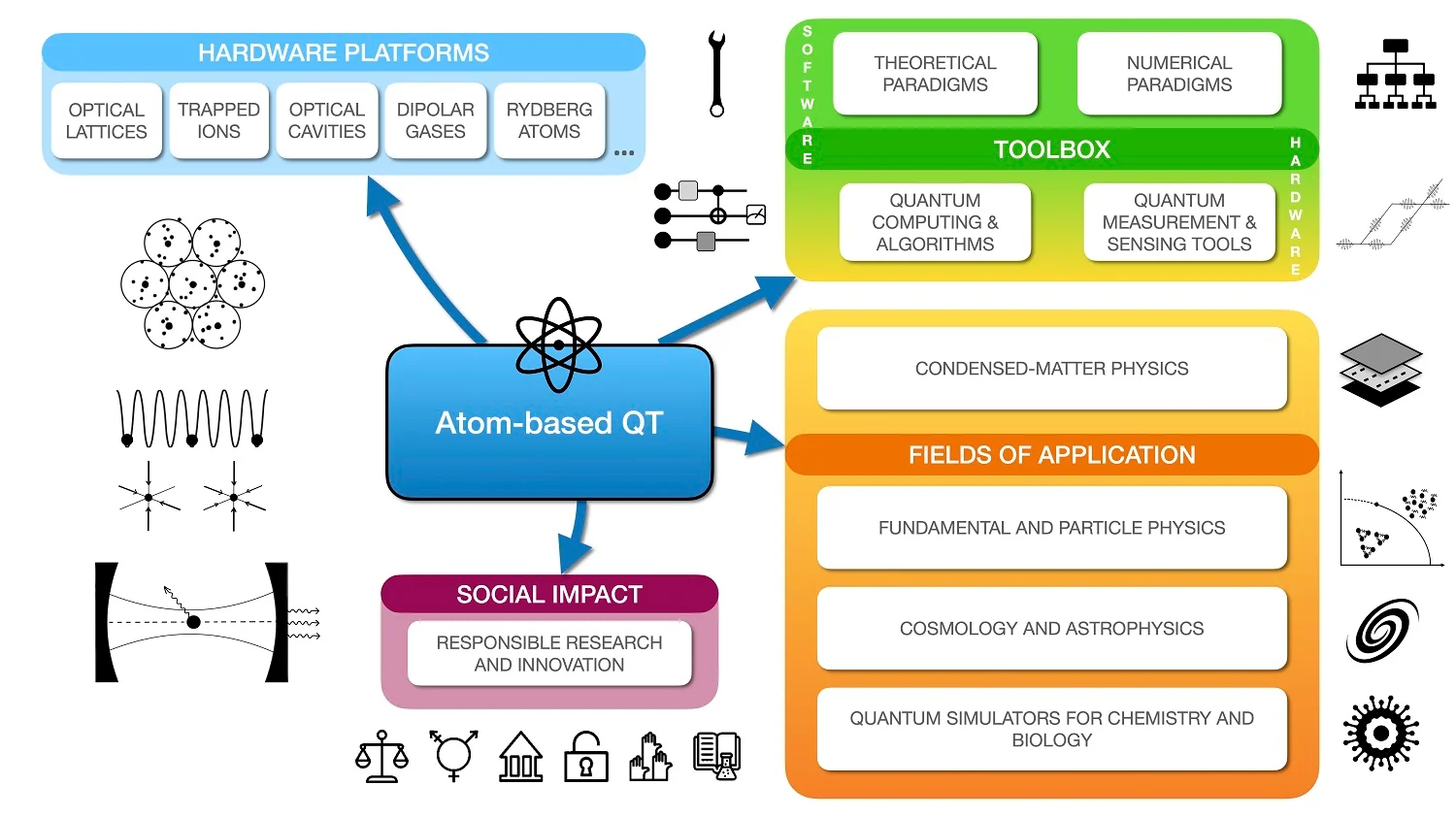
Quantum computing is no longer just a sci-fi dream or something only brainy scientists talk about in labs. It’s becoming a real game-changer, shaking up the tech world in ways we’re only starting to understand. Unlike regular computers that use bits (zeros or ones), quantum computers use qubits, which can be both zero and one at the same time, thanks to some mind-bending physics. This lets them tackle problems that would take regular computers years—or even centuries—to solve. In the last few years, breakthroughs in quantum computing have started to reshape industries, from medicine to cybersecurity to artificial intelligence. Let’s dive into what’s happening, why it matters, and where it’s all headed in simple, everyday language.

What’s the Big Deal with Quantum Computing?
To get why quantum computing is such a big deal, picture this: a regular computer is like a librarian who can only check one book at a time to find an answer. A quantum computer? It’s like the librarian checking every book in the library all at once. This speed and power come from quantum mechanics, a science that deals with how particles, like electrons, behave at super tiny scales.
Quantum computers rely on two weird but cool concepts: superposition and entanglement. Superposition means a qubit can hold multiple states (zero and one) at the same time. Entanglement is like a cosmic connection where qubits can instantly affect each other, no matter how far apart they are. These features let quantum computers process massive amounts of data in ways regular computers can’t dream of.
The breakthroughs we’re seeing today are making these machines more practical, stable, and ready to solve real-world problems. From cracking codes to designing new drugs, quantum computing is starting to show what it can do.
Recent Breakthroughs Making Waves
More Stable Qubits
One of the biggest hurdles for quantum computers has been keeping qubits stable. They’re super sensitive—think of them like a house of cards that collapses if someone sneezes. Temperature changes, electromagnetic waves, or even tiny vibrations can mess them up, causing errors. But recently, scientists have made huge strides in fixing this.
In 2024, companies like IBM and Google showed off new ways to make qubits more stable using something called error correction. This is like giving the computer a spell-checker that catches and fixes mistakes as it works. IBM’s latest quantum chip, for example, uses a technique where multiple physical qubits team up to act as one super-reliable “logical” qubit. This cuts down errors and makes quantum computers more trustworthy for real tasks.
Bigger and Better Machines
Another exciting leap is that quantum computers are getting bigger. The number of qubits a machine has is a big deal because more qubits mean more computing power. In 2023, a company called Quantinuum built a quantum computer with over 1,000 qubits, a huge jump from the dozens or hundreds in earlier models. More qubits mean the computer can handle tougher problems, like simulating complex chemical reactions or optimizing massive systems like global supply chains.
But it’s not just about raw qubit numbers. These new machines are also better at staying “coherent,” meaning they can keep their quantum magic going longer before things fall apart. This is a big step toward making quantum computers useful outside of research labs.
Quantum Algorithms That Solve Real Problems
Algorithms are like recipes for your computer—they tell it how to solve a problem. Quantum computers need special quantum algorithms to shine, and we’re seeing some cool ones pop up. For example, in 2024, researchers developed algorithms that can speed up tasks like machine learning (think AI that learns super fast) and cryptography (keeping secrets safe).
One standout is an algorithm that can optimize logistics—like figuring out the fastest delivery routes for millions of packages. Companies like Amazon and FedEx are already eyeing this tech to save time and money. Another algorithm helps design new materials by simulating how atoms interact, which could lead to better batteries or stronger metals.
How Quantum Computing Is Changing Industries
Healthcare: Faster Drugs, Better Cures
Quantum computing is starting to make a big splash in healthcare. One of the toughest challenges in medicine is figuring out how molecules work together—say, how a new drug might interact with a virus. Regular computers struggle with this because molecules are super complex. Quantum computers, though, can simulate these interactions in a snap.
In 2024, a team at MIT used a quantum computer to model a protein structure in record time. This could speed up drug discovery, helping scientists find treatments for diseases like cancer or Alzheimer’s faster than ever. Imagine new medicines hitting the market in months instead of years—that’s the kind of impact we’re talking about.
Cybersecurity: A Double-Edged Sword
Quantum computers are a bit like a superhero with a dark side when it comes to cybersecurity. On one hand, they could break the encryption that keeps our online data safe. Most of today’s encryption relies on math problems that are super hard for regular computers to solve—like factoring huge numbers. Quantum computers, with their insane speed, could crack these codes in minutes.
This has tech companies and governments scrambling to build quantum-resistant encryption. In 2023, the U.S. government started rolling out new standards for encryption that can withstand quantum attacks. On the flip side, quantum computers can also create super-secure communication systems using something called quantum key distribution. This uses entanglement to make messages that are basically impossible to hack. So, while quantum computing might shake up cybersecurity, it’s also paving the way for stronger defenses.
Artificial Intelligence: Smarter and Faster
AI is already changing our lives—think voice assistants, recommendation algorithms, or self-driving cars. Quantum computing could make AI even smarter. Training AI models takes a ton of computing power and time, but quantum computers can speed this up by crunching data way faster.
In 2024, Google’s quantum team showed how a quantum computer could train an AI model for image recognition in a fraction of the time it takes a regular computer. This could lead to AI that learns quicker, makes better predictions, and uses less energy. From smarter chatbots to robots that can think on their feet, quantum-powered AI is something to watch.
Finance: Making Money Moves
The finance world is all about speed and accuracy, and quantum computing is starting to make waves here too. Banks and trading firms deal with massive datasets—stock prices, market trends, risk models—that need lightning-fast calculations. Quantum computers can optimize portfolios, predict market shifts, and even spot fraud faster than ever.
For example, JPMorgan Chase has been experimenting with quantum algorithms to improve how they manage risk. In 2024, they ran a test that cut the time for a complex financial calculation from hours to seconds. That’s a big deal when millions of dollars are on the line.
Challenges We Still Face
Even with all these breakthroughs, quantum computing isn’t ready to take over the world just yet. There are still some big hurdles to clear:
- Cost and Accessibility: Quantum computers are crazy expensive to build and maintain. They need super-cold environments (think colder than outer space) to work, which means pricey equipment and lots of energy. Making them more affordable and accessible is a big challenge.
- Programming Them Is Tricky: Writing software for quantum computers isn’t like coding for your laptop. It requires a whole new way of thinking, and there aren’t enough experts who know how to do it yet. Companies are racing to train more quantum programmers.
- Scaling Up: While we’ve got machines with thousands of qubits, we’ll need millions for some of the biggest problems, like breaking encryption or simulating entire ecosystems. Getting there will take time and more breakthroughs.
- Real-World Use: Right now, quantum computers are great for specific tasks, but they’re not replacing your laptop anytime soon. They’re more like super-specialized tools for certain jobs. Figuring out how to make them useful for everyday stuff is still a work in progress.
Where Are We Headed?
So, what’s next for quantum computing? The future looks exciting, even if it’s still a bit fuzzy. Here’s what we might see in the next five to ten years:
- Hybrid Systems: Instead of replacing regular computers, quantum computers will likely work alongside them. Think of it like a tag team—regular computers handle the everyday stuff, while quantum computers tackle the heavy lifting for complex problems.
- More Industries Jumping In: As quantum tech gets cheaper and easier to use, more industries will hop on board. From agriculture (optimizing crop yields) to energy (designing better solar panels), the possibilities are huge.
- Quantum Internet: Scientists are working on a “quantum internet” that uses entanglement to send information instantly and securely. Early tests in 2024 showed it’s possible to connect quantum computers over long distances, which could lead to a whole new kind of network.
- Education and Training: As quantum computing grows, so will the need for people who understand it. Universities and companies are already offering courses to teach the next generation of quantum coders and engineers.
Why This Matters to You
You might be thinking, “This sounds cool, but how does it affect me?” Fair question! Quantum computing is still in its early days, but its impact is already trickling down. Faster drug discovery could mean better treatments for diseases. Stronger cybersecurity could keep your data safer. Smarter AI could make your apps and devices more helpful. And in the long run, quantum tech could help solve big problems like climate change by optimizing energy systems or designing new materials.
Plus, the job market is heating up. If you’re into tech, learning about quantum computing could open doors to some seriously cool careers. Even if you’re not a techie, the products and services powered by quantum tech will likely touch your life in ways we can’t fully predict yet.
Wrapping It Up
Quantum computing is like a rocket that’s just starting to lift off. The breakthroughs we’re seeing—more stable qubits, bigger machines, smarter algorithms—are laying the foundation for a tech revolution. It’s already shaking up healthcare, finance, AI, and cybersecurity, and that’s just the start. Sure, there are challenges, like cost and complexity, but the progress is real, and the potential is massive.
In a few years, quantum computing might not just be a buzzword—it could be as common as smartphones or cloud computing. For now, it’s an exciting space to watch, full of possibilities that could change the world in ways we’re only beginning to imagine. Keep an eye on it—this tech is about to take us to some wild new places.




